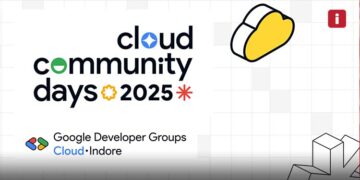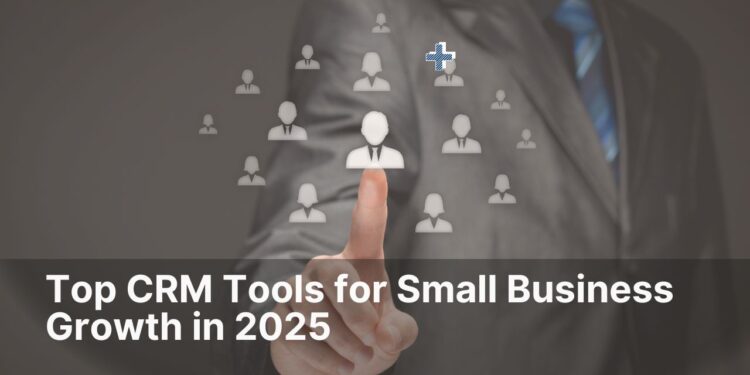Why CRM Tools Matter More Than Ever in 2025
In 2025, small businesses need more than spreadsheets and basic contact lists to manage leads and customers. A robust CRM (Customer Relationship Management) tool helps streamline communication, automate repetitive tasks, manage pipelines, and track performance — all in one dashboard. The best part? Modern CRMs are affordable, scalable, and designed for growing businesses.
Let’s explore the top CRM tools small businesses should consider in 2025.
1. Abstud CRM
Why It’s Great: Abstud CRM is a powerful all-in-one platform designed specifically for immigration consultancies, educational institutions, and service-based small businesses. What sets it apart is its customizable modules, client tracking, task automation, and seamless lead-to-client journey management.
- Top Features: Lead management, task automation, WhatsApp/email integrations, document tracking, cloud security, and ERP/accounting software integration.
- Best For: Immigration and overseas education consultancies, as well as other service-based industries like healthcare and finance.
- Bonus: Offers 24/7 support, regular updates, CRM training, and advanced reporting.
- Why Choose It: Built for immigration and education businesses with scalable features and industry-specific tools.
2. HubSpot CRM
Why It’s Great: HubSpot is a well-known name for small to medium-sized businesses looking for a free yet robust CRM solution. Its user-friendly interface and integration with marketing tools make it ideal for growth-focused brands.
- Top Features: Contact management, sales pipeline tracking, email marketing integration, meeting scheduler.
- Best For: Startups, solopreneurs, service-based businesses.
- Free Plan: Yes, with core CRM functionality.
- Why Choose It: No coding required, and easily scalable with add-ons.
3. Zoho CRM
Why It’s Great: Zoho CRM is one of the most customizable platforms on the market. It combines affordability with powerful automation, AI predictions, and team collaboration tools.
- Top Features: Workflow automation, AI predictions (Zia AI), lead scoring, multi-channel communication.
- Best For: Businesses with a tech-savvy team that needs deep customization.
- Pricing: Starts low, with scalable packages.
4. Pipedrive
Why It’s Great: Pipedrive is a sales-first CRM focused on visual pipelines and deal management. Its clean UI and automation tools help sales teams close more deals with less effort.
- Top Features: Drag-and-drop pipelines, AI sales assistant, custom chatbot & web forms.
- Best For: Sales-driven small businesses and agencies.
- Why Choose It: Easy onboarding and high user adoption.
5. Freshsales by Freshworks
Why It’s Great: Freshsales is an intuitive CRM with built-in phone, email, and activity tracking. It’s ideal for companies that need a simple, yet smart solution to unify their sales process.
- Top Features: AI lead scoring, visual sales pipelines, workflow automation.
- Best For: Small teams managing leads across multiple channels.
- Free Plan: Available with basic functionality.
6. Salesforce Essentials
Why It’s Great: Salesforce is a global leader in CRM, and its Essentials version is tailored for small businesses. It brings enterprise-level power at an affordable price.
- Top Features: Contact management, opportunity tracking, mobile app, reports & dashboards.
- Best For: Small businesses with growth ambitions.
- Why Choose It: Trusted by enterprises, flexible add-ons.
7. Monday Sales CRM
Why It’s Great: Built on the Monday.com work OS, this CRM allows businesses to customize their pipelines and workflows visually. It’s a great option if you want a project management + CRM combo.
- Top Features: Custom workflows, email sync, sales dashboard, automation.
- Best For: Teams looking for visual CRM with team collaboration.
- Why Choose It: Flexibility and visually-driven workspaces.
8. Keap (Infusionsoft)
Why It’s Great: Keap focuses on sales and marketing automation, making it perfect for businesses looking to automate email follow-ups and client nurturing.
- Top Features: Automated email sequences, invoicing, appointment scheduling.
- Best For: Coaches, consultants, and small service businesses.
- Why Choose It: Time-saving automation and lead tracking.
9. Insightly CRM
Why It’s Great: Insightly is designed for relationship-based selling. It integrates well with Google Workspace and Microsoft 365 and supports project management features.
- Top Features: Contact management, project tracking, workflow automation.
- Best For: B2B companies and consultancies.
- Why Choose It: Combines CRM + project management.
10. Capsule CRM
Why It’s Great: Capsule is a lightweight CRM solution that focuses on contact organization, sales tracking, and opportunity management. It’s perfect for businesses that need simplicity.
- Top Features: Task management, contact history, sales dashboard.
- Best For: Solopreneurs, small agencies, and consultancies.
- Why Choose It: Clean UI and easy to get started.
Conclusion: Choose the Right CRM for Your Growth Journey
No matter what your industry or team size is, having a CRM is non-negotiable in 2025. Tools like Abstud CRM, HubSpot, and Zoho offer different strengths — from automation and customization to integration and analytics. Identify your top needs (sales, marketing, project tracking), test a few platforms, and choose a CRM that supports your long-term business goals.













































